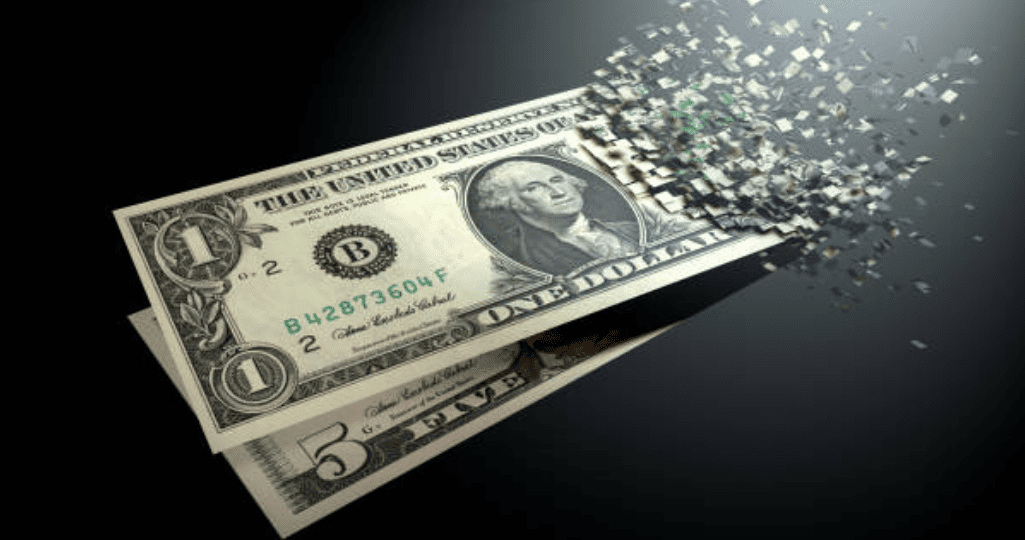
The dollar is America’s superpower. The dollar dominance gives Washington unparalleled economic and political clout. The United States can unilaterally impose sanctions on countries and shut them out of much of the global economy. If Washington spends freely, its debt, usually in the form of Treasury bills, is sure to be bought up by the rest of the world.
The sanctions imposed on Russia for its invasion of Ukraine, combined with an increasingly aggressive Washington, have set off a perfect storm, accelerating efforts by both Russia and China to diversify away from the dollar.
Central banks around the world do not hold many dollar-denominated reserves, and most transactions between central banks are conducted in renminbi. As Putin noted, they are also trying to get other countries to follow suit.
China’s Efforts To Weaken The US Dollar
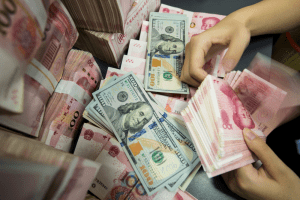
Former US President Donald Trump has sounded the alarm about China’s efforts to challenge the US dollar’s global dominance, saying losing the currency’s preponderance would equate to failure. in a world war.
Trump’s comments come amid a growing trend toward de-dollarization, with some countries abandoning the dollar in international trade. Trump emphasized China’s intention to change the global monetary standard and warned that if the United States lost its currency dominance, it would become a second-rate country, losing influence over the world. countries like Brazil, Colombia, Iran and Russia when switching to using Bitcoin.
The Gowing Trend Of De-dollarization
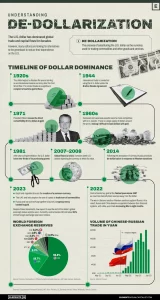
Many events have threatened the position of the US dollar as the primary medium of exchange in international trade and the backbone of the foreign exchange reserves of most countries.
The trend toward de-dollarization began with US sanctions on Russia following the annexation of Crimea in 2014 and intensified with Russia’s invasion of Ukraine in 2022. As a result, some countries have begun to reduce the share of the dollar in their trade and foreign exchange reserves.
On March 29, 2022, Brazil and China reached an agreement to replace the dollar with their own currencies – the yuan and the real – for bilateral trade, marking an important milestone. in an effort to internationalize the renminbi and challenge the Chinese dollar. Supreme power.
Dollar Dominance At Stake
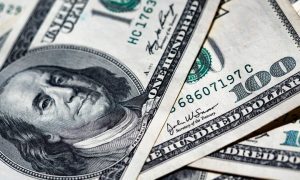
The dollar was the world’s primary reserve currency for most of the last century. Its position as the dominant global currency has been bolstered by the perception among international investors, including foreign central banks, that the US financial markets are home. safe hiding.
This perception has ostensibly spurred a large portion of capital inflows into the United States, which have grown dramatically over the past two decades. Many believe that this dollar dominance has allowed the United States to live beyond its means, suffering a large current account deficit financed by borrowing from the rest of the world at low interest rates. . Several other countries have resented this “exorbitant privilege” enjoyed by the United States.
Furthermore, the fact that a country as rich as the United States is a net importer of capital from middle-income countries like China is considered a prime example of current account imbalances.
These upward capital flows – contrary to the prediction of standard economic models that capital will flow from rich countries to poorer countries – have led to calls to restructure global finance and reconsider the role and relative importance of different reserve currencies.
The global financial crisis of 2008-2009 continues to wreak havoc on the global economy, leading to speculation of an imminent or imminent demise of the dollar as the world’s major currency. has intensified. In fact, there are signs that the dollar’s position may be in jeopardy. The United States is plagued by soaring national debt.
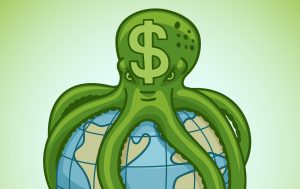
Total public (federal) debt rose to her $16.8 trillion, roughly equivalent to the country’s annual output of goods and services. The aggressive use of unconventional monetary policy by the US central bank, the Federal Reserve, has increased the supply of dollars and created risks to the financial system.
Moreover, the political impasse has made US policymaking ineffective and, in some cases, counterproductive in driving economic recovery. There are also serious concerns that recent budget tightening is limiting governments’ ability to spend on things such as education and infrastructure that are critical to long-term productivity gains.
All of these factors should have caused the decline of the US economy and accelerated the declining importance of the dollar. However, the reality is very different. The dollar’s dominance as the world’s reserve currency was largely unaffected by the global financial crisis.
The dollar’s share of global foreign exchange reserves not only changed slightly in the pre-crisis decade, but has remained constant at around 62% since the crisis began Overall, foreigners have significantly increased their holdings of US financial assets.
Foreign investors now hold about $5.6 trillion in U.S. Treasuries, up from his $1 trillion in 2000 Despite the rising U.S. government debt stock, foreign investors are increasingly exposed to debt that is “privately held” (i.e. not held by other parts of the U.S. government or the Federal Reserve).
We are steadily increasing our share of the That percentage is now 56%. In some ways, the dollar’s role as the dominant reserve currency has strengthened since the currency crisis.
The de-dollarization trend has been driven by Russia and China, which have been directly impacted by US sanctions and economic competition. However, it is gaining momentum with the involvement of Saudi Arabia, the primary guarantor of dollar payments in oil deals that has historically underpinned currency dominance.
Saudi Arabia, Russia and China have sold US Treasuries, reducing the dollar’s share of trade and foreign exchange reserves. Saudi Arabia and China have also discussed the possibility of using the renminbi for oil purchases, marking the first instance of using the renminbi for LNG trading.
Risks and Impacts Loss of the US dollar as the world’s dominant currency could pose risks to the country’s global influence and economic stability. The trend towards de-dollarization is cause for concern as it represents a shift in the balance of power on the global stage. An increasing trend of de-dollarization could have serious repercussions for the United States.
Dipprofit shall not be liable for any damages caused by or in connection with use of or reliance on any of the content, goods, or services mentioned and is not responsible, directly or indirectly, for any damage or loss alleged to have been caused.